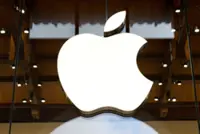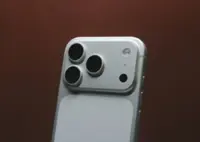After losing two complaints before the US International Trade Commission, Apple has stepped up its lobbying to change the agency’s practices. — The New York Times
Over the past decade, some of Apple’s biggest regulatory headaches have come from a little-known federal agency called the US International Trade Commission. The agency’s patent judges have found Apple guilty of appropriating innovations in smartphones, semiconductors and smartwatches. And recently, they forced Apple to remove a health feature from Apple Watches.
Now the tech giant is pushing back. While it defends itself from patent complaints before the ITC, Apple has begun lobbying lawmakers to help rewrite the agency’s rules.
The company has been campaigning across Washington for legislation that would make some patent owners ineligible to bring complaints before the ITC. It has sought to influence the language of committee reports that could affect how the agency levels punishments. And it has added to its lobbying might by enlisting one of the agency’s former commissioners.
The lobbying effort comes as Apple is enmeshed in a multiyear legal battle with two US medical device makers over technology in the Apple Watch. The companies, AliveCor and Masimo, filed complaints in the ITC against Apple in 2021 for appropriating innovations they had developed to measure the heart’s electrical activity and people’s blood oxygen levels.
After losing both cases, Apple this year removed the technology to measure blood oxygen in its watches, which infringed on Masimo’s patent. It is appealing the ITC’s decision. A similar punishment is on hold as court proceedings continue related to the ITC’s finding that Apple infringed on AliveCor’s innovations with the Apple Watch’s electrocardiogram feature.
Apple is trying to blunt the agency’s signature power. Unlike traditional patent courts, where juries or judges typically issue fines, the ITC’s judges can discipline a company that violates a patent by banning imports of the infringing product.
Because Apple makes all its signature devices overseas, a block on the import of its devices would be perilous to the company. To avoid that penalty in the future, the company says, it wants the agency to put the public interest of a product ahead of a ban. The company is betting that the court would then give more credence to Apple’s argument that Americans would be harmed by an import ban because they would lose access to the communication and health features in iPhones and Apple Watches.
An Apple spokesperson said the existing law requires that the ITC consider how the public interest could be affected before ordering an import ban. But it said public data showed that the agency had made public-interest evaluations in only one-fifth of cases it had heard since 2010. As a result, its lobbyists have been talking with White House and congressional leaders about the ITC, as well as other issues such as privacy and domestic manufacturing.
Adam Mossoff, a patent law expert and a professor at George Mason University, said Apple was misinterpreting the law, which requires the ITC to block a product if it finds that it infringes on a patent. An import ban is supposed to be overruled only if there’s a proven threat to health or safety, he said. Blocking sales of an Apple device wouldn’t qualify as harmful.
“The problem with their lobbying is that they’re trying to neuter a well-functioning court by closing its doors to Americans who have had their rights infringed,” he said.
When Congress set up what became the ITC in 1916, it wanted to protect American innovation by allowing the US government to ban the import of products with stolen technology. But as manufacturing moved overseas, the federal agency’s court system became a forum for disputes among US companies.
The ITC’s judges, who are appointed by the commission, hold hearings with different standards for patent disputes than those that govern District Court cases. The cases are fast and compressed and can culminate with the judge punishing a patent abuser by blocking its products.
Before a ban is put into effect, a company that’s found guilty can appeal to the White House for a reprieve. But it’s rare for an administration, which oversees the agency, to go against a judge’s recommendation.
Apple has become the preeminent example of how the ITC can be used. Because the company manufactures almost all its products overseas, the judges who have found it guilty of infringing on patents in smartphones, semiconductors and smartwatches say it should be punished by blocking the import of iPhones, iPads and Apple Watches.
Apple has largely escaped the import bans. In 2013, the Obama administration vetoed the ITC’s plan to block iPhone imports after the agency determined that Apple had infringed on one of Samsung’s smartphone patents. In 2019, Apple agreed to pay Qualcomm a royalty for some wireless technology patents, heading off an ITC ruling that could have blocked iPhone sales. And after losing the Masimo case, Apple agreed to remove the infringing health feature to dodge an Apple Watch ban.
For years, Apple avoided the kind of lobbying that was customary for a large corporation. It kept a small office in Washington staffed by just a few people and employed only one lobbying firm, two people familiar with the company’s practices said. But as regulatory challenges to its business have risen, its policy team has swelled to include dozens of people and 11 lobbying firms.
In the face of the patent complaints from AliveCor and Masimo, Apple’s team in Washington gave priority to lobbying to change the ITC. In 2022, it began working with the ITC Modernization Alliance, a loose-knit coalition of companies that includes Samsung, Intel, Dell, Google, Verizon and Comcast. The group worked with members of Congress as it wrote the Advancing America’s Interest Act in 2019 and supported its reintroduction in 2023.
The bill’s backers – Reps. David Schweikert, R-Ariz., and Donald Beyer Jr., D-Va. – have promoted it as a way to curb abuse of the ITC by patent trolls. It would prohibit patent holders from suing unless they manufactured a product that used the patented technology or had licensed the technology to someone else already.
AliveCor and Masimo are medical companies that have focused on selling products to health care providers and consumers more than licensing innovations to consumer technology companies such as Apple.
Last year, Apple’s lobbyists filed three reports disclosing that it had campaigned on behalf of the bill, according to Open Secrets, a campaign finance research nonprofit. It also added to its lobbying ranks by hiring Deanna Tanner Okun, a former ITC chair who works for the law firm Polsinelli. (The hiring was previously reported by Politico.)
The lobbying campaign coincided with an effort to argue in Washington that an ITC ban on Apple Watch imports would deprive people of a device that was crucial to their health, two people familiar with the lobbying said.
In addition to lobbying directly on legislation, Apple worked with a member of Congress to put language on Page 97 of a committee report for the 2024 Appropriations Bill, said Rep. Ken Buck, R-Colo. The language would require the ITC to review how it determined the value to the public of a product before suggesting a ban and to report to Congress on that process.
“To me, this went around the legitimate process,” said Buck, who is leaving Congress this month. He told Rep. Thomas Massie, R-Ky., who is on the Rules Committee, that he had 10 votes and would block the bill unless the language was removed. Massie’s office confirmed that the language had been removed at Buck’s request but declined to comment further.
An Apple spokesperson disagreed with Buck’s claims that its lobbying circumvented the legitimate legislative process. She said its public federal lobbying reports detailed how it worked on issues important for its products and customers.
The spokesperson also pointed to the Senate’s passage of a committee report with a sentence expressing its support of the ITC’s doing thorough analysis of the public health implications of a product ban before issuing one, which is what Apple wants in the future. – The New York Times





